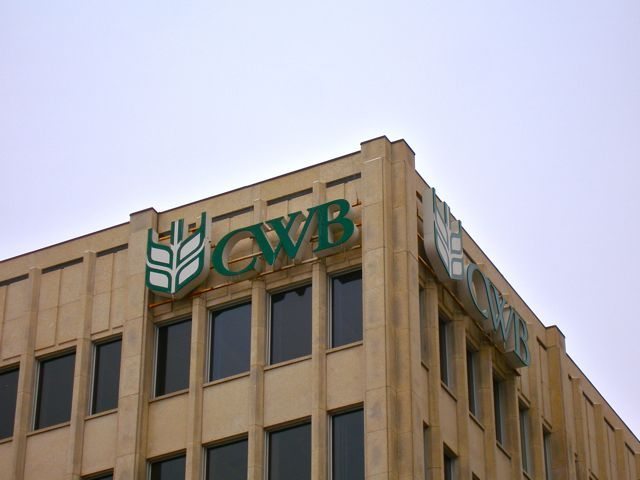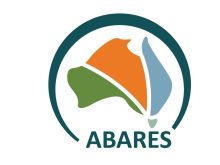Pooling options
The CWB is offering two pools. Both will offer government guaranteed initial payments, adjustments and final payments. Farmers can also opt for the 80, 90 or 100 per cent Early Payment Option.
The Harvest Pool: It runs the entire crop year and will be offered for 12 grades of Canada Western Red Spring (CWRS) wheat, five grades of Canada Western Amber Durum (CWAD) wheat, one grade of Canada Western Prairie Spring Red (CPSR) wheat, two grades of Canada Western Red Winter (CWRW) wheat and two-row malting barley. Oct. 31 is the sign up deadline.
Read Also

U.S. grains: Soy drops on demand worries, corn firm as traders question lofty yield projections
U.S. soybean futures fell to a 1-1/2 week low on Tuesday as China continued to shun purchases from the United States and as forecasts for improved rains in the coming days reinforced expectations for a sizeable Midwest harvest.
Participates are guaranteed delivery of all their committed tonnes by July 31, 2013.
Early Payment Pool: The sign up deadline is Sept. 28. The same classes and grades of wheat and two-row malting barley are eligible as in the Harvest Pool. Participants are guaranteed delivery by Jan. 31.
Farmers who encounter a crop failure can withdraw from the pools penalty-free.
Farmers can also change the grade they commit to deliver until the sign-up deadline.
For a minimal fee farmers can switch from a pool to the CWB’s cash selling options before the pool sign-up deadlines.
“The reason for this is frankly we’re competing with every other company and we’re going to want your business so every tonne is going to count,” Dave Simonot, the CWB’s director of farm services told more than 100 people at a meeting here March 7 organized by Manitoba Agriculture, Food and Rural Initiatives.
Pooling offers some protection for grade risk. A farmer can get heavily discounted when he or she fails do deliver the contracted grade under a cash contract, Flaten said.
CWB pool participants will pay a management fee of either $5 a tonne or two per cent of the pool’s value, which ever is higher, and get remaining proceeds returned to them, he said.
Pooling is a useful benchmark by which farmers can measure how well they’ve done selling for cash, Flaten said.
Cash contracts
Deferred Delivery: The CWB’s version will be similar to existing deferred delivery contracts, Simonot said. It will apply to the CWRS, CWAD, CWRW, CPRS classes, as well as two-row malting barley and feed barley. There will be 30-day delivery window. The CWB will also work with farmers trying to hit a target price.
Futures First: It allows farmers to lock in a futures price first and the basis later. Wheats in the CWRS, CWRW and CPRS classes are eligible under quarterly delivery periods. The futures can be rolled over to the next trading month before locking in the basis.
Basis First: It allows the farmer to lock in the basis and the futures price later. Wheats in the CWRS, CWRW and CPRS classes are eligible. This contract will be specific to one grain handler.
“We won’t be in every single market on every single day at every single location,” Simonot said. “So you need to take that into consideration when you’re signing this.”
Malting Barley Production Contract: Signing up gets the farmer into the pool, with the option of switching to a cash contract before the sign up deadline. The CWB will also be able to adjust the contract before that deadline in the event the crop is short or isn’t malting quality.
“More complicated”
Winnipeg-based Paterson Grain is offering deferred delivery contracts, as well as futures only and basis only contracts, target price contracts, floor price contracts and a pool based on futures prices, said Dwayne Couldwell, manager of Paterson’s oilseed trading.
“One of the things that first struck me about wheat marketing is it’s a lot more complicated than oilseeds,” he said.
Oilseeds are just oil and meal. Wheat has many classes, grade and end-uses.
But Couldwell stressed wheat growers will be well served by an open market because there’s so much competition between grain companies.
Cargill, whose Canadian arm is also based in Winnipeg, will offer deferred delivery, fixed basis, and target price (deferred and futures) contracts, said Donna Sagin, Cargill’s grain marketing specialist.
Cargill’s PaceSetter Xtra allows farmers to lock in a floor price but still capture higher prices if they occur.
Its MarketTracker is a stop loss contract. And the PriceProtecter put — protects against crop failure.
Cargill has selected No. 2, 13 per cent CWRS wheat as its reference grade, Sagin said. Farmers will receive premiums or discounts for delivering higher or lower grades.
“It used to be wheat was a more regulated product with the railways, now we’re probably looking at more of a bid and tender process with the cars,” she said. “How fast we can load cars, get them to Vancouver and get them back and loaded again will definitely play into our freight and elevation costs.”
Couldwell predicted grain merchants will want to ship a lot grain to Vancouver for export despite excess capacity elsewhere, including Thunder Bay. Given current ocean freight rates, grain can be exported from Vancouver and go through the Panama Canal to service eastern markets, he said.
Managing wheat stocks will be critical for grain sellers and farmers, Sagin stressed. Merchants need to know the quality and quantity of wheat so they can sell it, she said.
— Allan Dawson is a reporter with the Manitoba Co-operator at Miami, Man. The full version of this article appeared in the March 15 Co-operator (page 7).
















